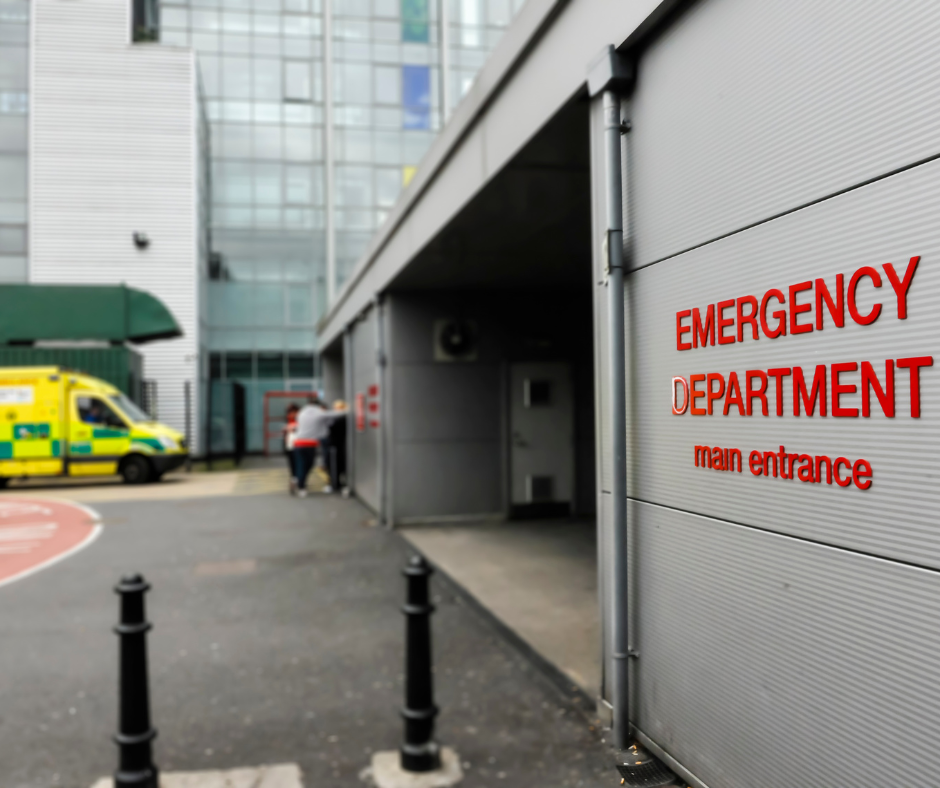24/7 online booking

When Back Pain is an Emergency: Signs You Shouldn’t Ignore
Back pain is a common issue that many people experience at some point in their lives. Often, it’s due to minor strains or posture-related problems that can be managed with rest, gentle exercise, and over-the-counter pain relief. However, there are certain instances when back pain could indicate a more serious underlying condition that requires immediate medical attention. Knowing when back pain is an emergency can make all the difference in preventing further complications.
When Should You Be Concerned About Back Pain?
While most back pain is not life-threatening, there are specific symptoms and circumstances where it could be a sign of a serious medical issue. Here are some of the key indicators that your back pain might require urgent attention:
1. Severe or Unrelenting Pain
If your back pain is severe, persistent, and doesn’t improve with rest or pain medication, it could be a sign of a more serious problem. Intense pain that radiates down your legs, causes numbness, or is accompanied by weakness in your limbs should not be ignored.
2. Loss of Bladder or Bowel Control
A sudden loss of control over your bladder or bowels, known as incontinence, combined with back pain, could indicate a condition called cauda equina syndrome. This is a rare but serious condition where the bundle of nerves at the base of your spine becomes compressed, leading to nerve damage if not treated promptly.
3. Numbness or Tingling
Numbness, tingling, or weakness in your legs or feet, particularly if it’s on both sides, can be a sign of nerve compression or damage. Conditions like a herniated disc, spinal stenosis, or cauda equina syndrome can cause these symptoms and require urgent medical evaluation.
4. Pain Following Trauma
If your back pain occurs after a fall, car accident, or other trauma, it’s important to seek medical attention. Trauma can cause fractures, dislocations, or internal injuries that may not be immediately apparent but can lead to serious complications if left untreated.
5. Unexplained Weight Loss
If you experience significant, unexplained weight loss along with back pain, it could be a sign of an underlying condition such as cancer or an infection. These symptoms warrant a thorough medical examination to rule out any serious illnesses.
6. Fever and Back Pain
A high fever accompanied by back pain could indicate an infection, such as osteomyelitis (an infection in the bones) or a spinal abscess. Infections of the spine are serious and require immediate treatment with antibiotics or surgery to prevent complications.
7. Pain that Worsens at Night
Back pain that worsens at night or doesn’t ease with rest can be a sign of a serious condition, such as an infection, tumour, or spinal fracture. Pain that is worse when lying down could also indicate an issue with the structures of the spine itself, rather than just muscular pain.
What To Do If You Experience These Symptoms
If you are experiencing any of the symptoms mentioned above, it’s crucial to seek medical attention immediately. Do not wait to see if the symptoms improve on their own, as delaying treatment can lead to permanent damage or other serious health consequences.
In an emergency situation, visit your local A&E department or contact your GP for urgent advice. They may recommend imaging tests, such as an MRI or CT scan, to determine the cause of your symptoms and to develop an appropriate treatment plan.
How Osteopathy Can Help with Back Pain
For non-emergency back pain, osteopathy offers a holistic approach to treatment. Osteopaths are trained to assess the musculoskeletal system and identify the underlying causes of pain. They use a range of hands-on techniques, including gentle manipulation, stretching, and massage, to relieve pain, improve mobility, and support the body’s natural healing processes.
If your back pain is related to muscle tension, poor posture, or minor injuries, osteopathy can be an effective way to manage your symptoms and prevent future problems. However, it’s important to remember that osteopathy is not a substitute for medical treatment in emergency situations.
Conclusion
Back pain is a common issue, but it’s essential to recognise when it’s more than just a minor discomfort. Severe or persistent back pain, especially when accompanied by other worrying symptoms, should be taken seriously and evaluated by a medical professional as soon as possible. Understanding the signs of a back pain emergency can help you seek timely care and protect your long-term health. If you’re experiencing back pain that doesn’t require emergency treatment, consider visiting an osteopath for a comprehensive assessment and personalised care plan.
If you are unsure about your symptoms please call 999 or 111 for urgent support.
If you would like to book and appointment with us, you can do so by clicking here.

Leave a comment